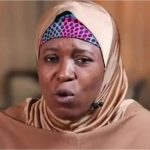The Catholic Archbishop of Sokoto Diocese, Bishop Matthew Kukah, has described President Bola Tinubu, former President Muhammadu Buhari, and previous Nigerian leaders as products of an “accidental leadership cycle,” pointing out their unpreparedness for the complexities of governance.
Speaking at the inauguration of Start-Rite School’s new building and the 4th Amaka Ndoma-Egba Memorial Lecture in Abuja on Sunday, Bishop Kukah criticized Nigerian leadership for lacking essential knowledge.3“None of them were fully prepared before assuming office, especially in a world where the demands of leadership are rapidly evolving,” Kukah stated.
He argued that this ongoing trend prevents Nigeria from effectively addressing its political and economic challenges.
While noting Nigeria’s democratic progress, symbolized by the principle of ‘one man, one vote,’ Kukah expressed concern that the country’s democracy is malfunctioning under successive administrations.
Kukah’s remarks come amid ongoing debates about governance and the preparedness of Nigerian leaders to handle national issues such as economic recovery, security, and social development.
“If we examine our history, almost every leader who came to power in Nigeria did so through an unforeseen turn of events,” Kukah said. “President Tinubu, despite claiming preparedness, is struggling to stabilize the country. He inherited a troubled nation from Buhari, who had already resigned himself to failure.”
He traced Nigeria’s leadership history: “Buhari followed Jonathan, who unexpectedly became president after initially planning retirement as a deputy governor. Jonathan replaced Yar’Adua, who had intended to return to academia. Yar’Adua succeeded Obasanjo, who was released from prison to lead the nation. Obasanjo’s tenure began after Abacha, who was poised for indefinite rule until his sudden demise. Before him, Shonekan was a business executive thrust into governance.”
Kukah emphasized that while global challenges evolve, the fundamentals of effective leadership—such as deep knowledge and understanding of the environment—remain constant.
At the event, Brig. Gen. Buba Marwa (retd.), Chairman of the National Drug Law Enforcement Agency (NDLEA), discussed the importance of developing leadership qualities from an early age. He linked many of Nigeria’s societal issues, including crime and drug abuse, to failures in leadership and accountability.
Marwa shared a case from his agency’s work: “We recently dismantled a drug trafficking cartel involving visually impaired individuals. A blind man was caught transporting cannabis from Lagos to Kano, claiming ignorance of the package’s contents. This led us to uncover more blind individuals in Lagos and beyond, all linked to the same operation. Interestingly, even the ultimate handler was also blind.”
He chose not to reveal further details about the cartel’s leader, adding, “I won’t tell you the rest of the story.”






